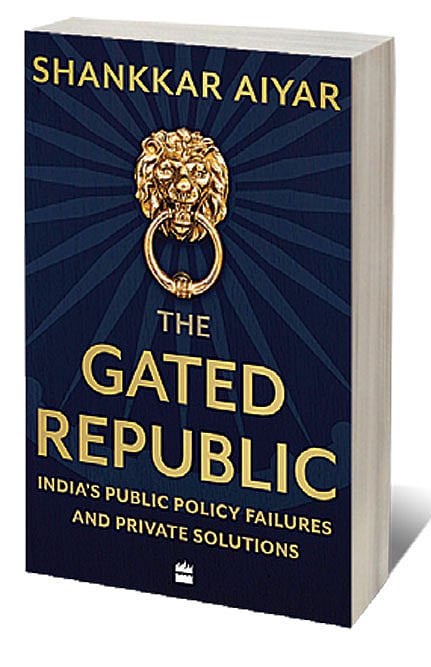A Broken System

WHEN THE CORONAVIRUS pandemic struck India, there was all-round panic given the poor state of healthcare infrastructure. It was hard to find ventilators in government hospitals in case a patient required critical care. In private hospitals, where the availability of ventilators was much better, few except those with deep pockets could access them if needed. Soon enough, there were stories about price gouging: if you didn’t have money, beds in private hospitals suddenly became scarce to the point of non-availability. There was a villain at hand: the greed for profit in a time of pandemic.
This script is only slightly different from what happens during normal times. Government hospitals offer free or cheap facilities but people—even those who are poor—prefer to visit a high-cost private alternative. The why of it is not hard to figure: government hospitals are free but the quality of service is so poor that anyone who has a better option available goes there. The story can be diversified to different aspects of public service provision: from water to transport and from power to education, governments provide these services that few are happy with. The system is broken to such an extent that short of a return to the drawing board, it can’t be fixed. There are patchwork solutions that have been adopted but the costs of running and managing the broken system is exorbitantly high. The private sector, with a much smaller scale of operations in each of these sectors—power, education, healthcare and transport—does a much better job even if its services are way more expensive than the ones dished out by governments.
Shankkar Aiyar’s The Gated Republic is a detailed excursion through these failures. The anatomy of failure runs, in a schematised fashion, somewhat like this. First, government draws up ambitious plans to provide these services. Quality requires extensive sums of money that are hard to find in a developing country. Instead of first trying pilots in specified areas, from where lessons about the working of service delivery can be imbibed, politics demands that these services be provided as widely as possible.
The result is too little butter and too much bread. The history of unhappiness with government in 1970s and 1980s can be rewritten from this perspective. When the private sector was unshackled in the 1990s and more fully in the 21st century, it stepped into the breach but with a cost. That is understandable: the private sector provides services even as its goal remains making profit from their provision. Might the original sin of government be that it thought service delivery was a charitable enterprise?
AIming High
20 Feb 2026 - Vol 04 | Issue 59
India joins the Artificial Intelligence revolution with gusto
Can the clock be turned, and governments made efficient? In some areas, for example, education, some state governments have tried hard to make things work. Here help has been forthcoming from non-governmental organisations and expertise available with academics. But the defining feature: government-recruited teachers accountable to virtually no one ensures that whatever improvements that take place are marginal and, very often, reversible. In other sectors, power, for example, private provisioning became necessary because the system was so broken that it could not reliably serve the most important customers like industrial consumers. Captive power was not an option but necessity. Here, as in education, quality was sacrificed at the altar of price: governments have to provide all consumers—rich, poor, middle-class—at the same price and the poor at even lower prices. Cost-plus pricing was, for a long time, taboo; when finally cost inflation became unavoidable, it was to take care of a bloated workforce and the truly unmanageable costs of running these enterprises. Private enterprise, once held to be a solution, came with its own problems during the era of cronyism. Might better regulation be a solution? It can be but, as with most things Indian, only on paper. For the time being, India runs on decrepit engines.

